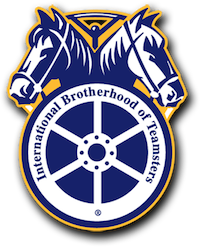
Unions, Advocates Applaud NYS Legislature for Passing Warehouse Worker Protections
Unions and community organizations cheered action on the Warehouse Worker Protection Act, which passed the State Legislature today. The act brings transparency to secret quotas in the warehouse industry, ensuring that workers at companies like Amazon know what quotas they are being judged against and that those quotas do not interfere with legally protected breaks.
The legislation, sponsored by Senator Jessica Ramos and Assemblymember Latoya Joyner, chairs of each chamber’s labor committee, passed the Senate on Wednesday and the Assembly on Friday. The elected officials drafted the bill with the New Yorkers for a Fair Economy coalition, which organized and lobbied to build support in the legislature and win its enactment. Next, Governor Hochul will need to sign the bill for it to become law.
Injuries increased by 64% at Amazon warehouses in New York as the company reinstated its grueling quotas after the first wave of the COVID pandemic, according to a report from New Yorkers for a Fair Economy.
The Warehouse Worker Protection Act requires that major warehouse companies provide their employees with documentation of their quotas at time of hire, or when the law takes effect for current employees. Employees must also be provided with copies of their quota when changes are made and have the right to request their quota at any time, even after their employment ends. Companies will no longer be able to impose quotas that interfere with workers’ lunch, rest, or bathroom breaks. Workers are protected from retaliation when exercising their rights under the act.
“Amazon is driving down standards in the warehouse industry that Teamsters have achieved over generations,” said Thomas Gesualdi, President of Teamsters Joint Council 16 in New York City. “The Warehouse Worker Protection Act is needed to finally bring transparency to unsafe quotas that are pushing workers to the brink. Thank you to Senator Ramos, Assemblymemer Joyner, and the State Legislature for your leadership on behalf of warehouse workers.”
“This is a critical step in addressing Amazon’s abuses,” said John Bulgaro, President of Teamsters Joint Council 18 in Albany. “At the same time, it is a first step. Workers having the freedom to collectively bargain is the way that we’ll ultimately change the culture at abusive employers like Amazon.”
“With Amazon expanding across northern New York and elsewhere, Amazon’s abusive practices have the danger of pushing down standards across the warehousing industry,” said George Harrigan, President of Teamsters Joint Council 46 in Buffalo. “By eliminating secret quotas, we’ve achieved a key step in holding Amazon accountable and protecting warehouse workers across the state.”
“For too long, Amazon has profited off the backs of workers, putting their health and safety at risk. The Warehouse Worker Protection Act is a great first step to empower workers, and paves the way for New York to lead with labor in the face of corporate abuse. We applaud the New York State Senate and Assembly for passing this essential bill and urge Governor Hochul to take swift action to put workers first,” said Maritza Silva-Farrell, Executive Director of ALIGN, leader of the New Yorkers for a Fair Economy coalition.
“The warehousing industry is one of the most dangerous as well as one of the fastest growing in New York. Amazon alone opened an additional 30 facilities over the last twelve months, and we know that the serious injury rate at Amazon is 54% higher than the state’s entire warehousing industry. High injury rates and dangerous work quotas, especially at Amazon, simply need to be addressed and thankfully the Warehouse Worker Protection Act helps address this urgent problem. The RWDSU congratulates the New York legislature for passing this important bill, which will improve the lives of countless workers and families by making sure that those who work in warehousing get home safe. We thank Majority Leader Stewart-Cousins and Speaker Heastie as well as the bill sponsors Senator Ramos and Assemblywoman Joyner for their leadership on this important bill and look forward to seeing it signed into law,” said Stuart Appelbaum, President RWDSU.
“This is a huge victory for worker safety. Amazon and other e-commerce companies have profited from the dangerous working conditions in their warehouses and delivery routes. The WWPA will protect thousands of warehouse and logistics workers,” said Olivia Leirer, Co-Executive Director, New York Communities for Change.
“Amazon has used quotas to foster a climate of fear among their warehouse workers, forcing them to push their bodies to the brink or risk losing their jobs. The WWPA takes a crucial step towards reducing worker injuries by providing greater protection against retaliation for workers who speak up or ask about their quotas and work rates,” said Irene Tung, Senior Researcher and Policy Analyst, National Employment Law Project.
About New Yorkers for a Fair Economy
New Yorkers for a Fair Economy (NYFE) is a coalition of labor organizations, small businesses, and immigrant and community organizations uniting to safeguard our communities from abusive practices of big corporations and achieve an economy that works for all New Yorkers. This coalition includes the frontline workers who care and provide for our communities, the small businesses that provide essential services that we need, the community organizations that protect the environment and the dignity of Black, brown, immigrant and gender-oppressed communities that make up our diverse state. NYFE is led by ALIGN (Alliance for a Greater New York), which also led the NY Essential Workers Coalition that won the passage of the NY HERO Act earlier this year. NYFE is also joined by labor unions Teamsters Joint Council 16, Retail Wholesale, and Department Store Union, UAW Region 9A; community groups New York Communities for Change, Make the Road New York, and Restaurant Opportunities Center New York; and national research and advocacy organizations National Employment Law Project, Institute for Local Self Reliance, American Economic Liberties Project, and Strategic Organizing Center.
